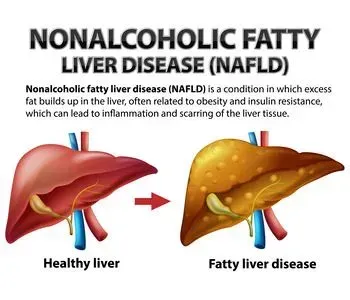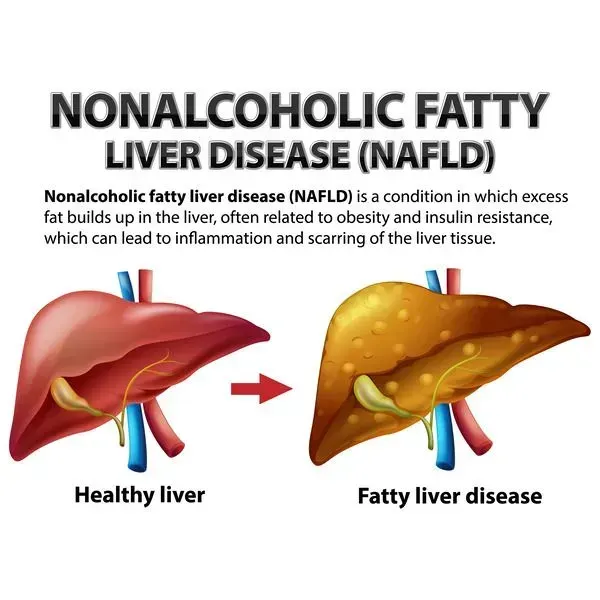

Medically Reviewed by
Dr Guru N Reddy
on
June 21, 2024 | Written by
DLDC Editorial Team


What is Non-Alcoholic Fatty Liver Disease?
NAFLD is an umbrella term for a range of liver conditions affecting people who drink little to no alcohol. The main characteristic of NAFLD is the accumulation of fat in liver cells. There are two main types of NAFLD:
Silent But Serious: Symptoms to watch for
NAFLD is often referred to as a "silent" disease because many people with the condition do not experience symptoms, especially in the early stages. However, as the disease progresses, some individuals may develop symptoms such as:
In advanced stages, NAFLD can progress to Non-Alcoholic Steatohepatitis (NASH), which involves liver inflammation and damage. If left untreated, NASH can lead to liver fibrosis (scarring), cirrhosis, and even liver cancer. Advanced liver disease symptoms might include jaundice (yellowing of the skin and eyes), ascites (accumulation of fluid in the abdomen), and hepatic encephalopathy (confusion and cognitive impairment).
Risk Factors for NAFLD
Several factors contribute to the development of NAFLD. Here are some key risk factors:
Prognosis and Prevention
Early detection and lifestyle changes are crucial for managing NAFLD effectively. In most cases, managing weight, diet, and exercise habits can prevent progression to a more severe stage. However, if left untreated, NAFLD can advance to non-alcoholic steatohepatitis (NASH), characterized by inflammation and scarring of the liver. This can further progress to cirrhosis, a condition where healthy liver tissue is replaced by scar tissue, eventually leading to liver failure. Fortunately, even in cases of NASH, lifestyle changes can still offer significant benefits.
Living a Healthy Life with NAFLD
NAFLD does not have to define your life. By making conscious lifestyle changes and working with your doctor, you can effectively manage the condition and maintain good overall health. Remember, early detection and a commitment to a healthy lifestyle are your best weapons in the fight against NAFLD. Don't hesitate to talk to your doctor about any concerns you may have.
At DLDC, we specialize in comprehensive liver care, providing expert diagnosis and personalized treatment plans to help you maintain a healthy liver. If you suspect you may have NAFLD or are experiencing symptoms, schedule a consultation with our experienced team today. Your liver health is our priority!